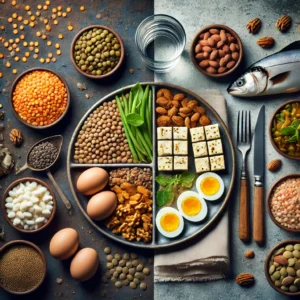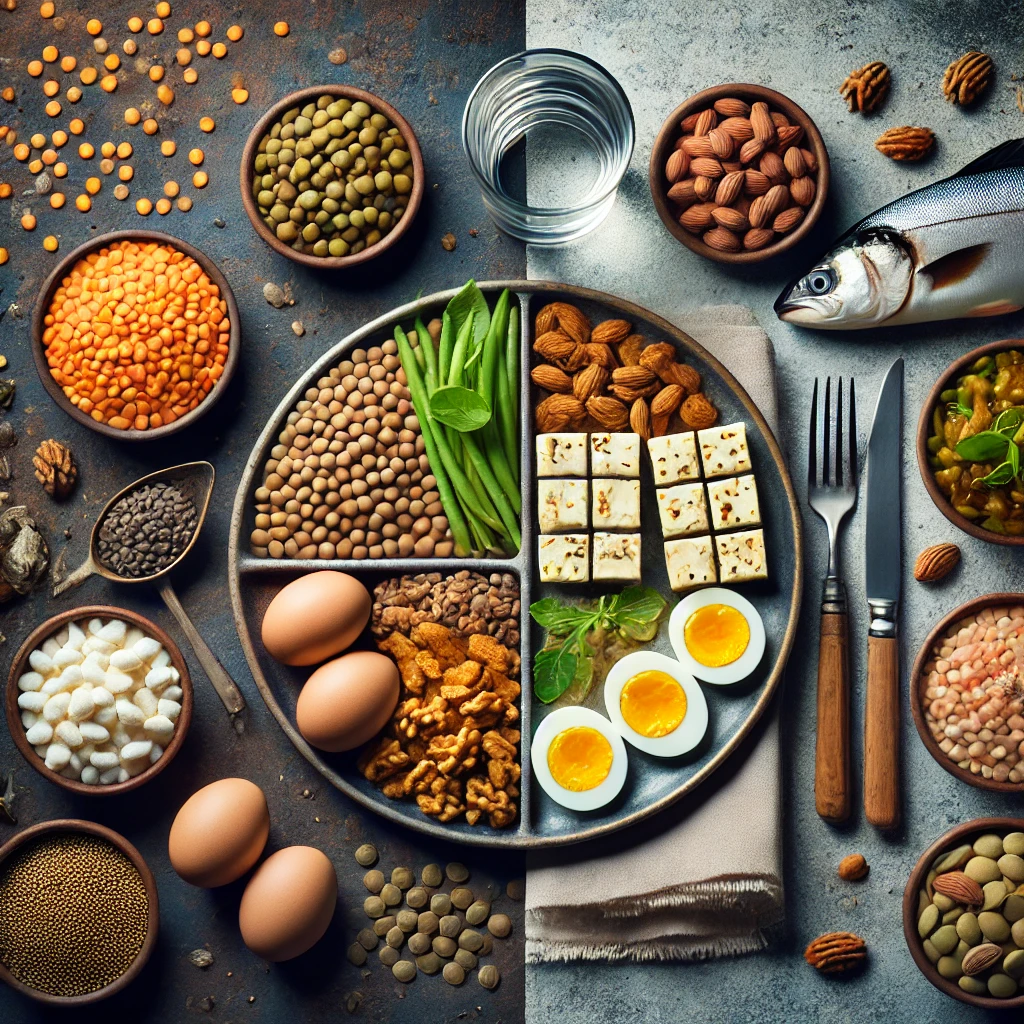In recent years, the nutritional profile of the Indian diet has come under scrutiny. While India is
home to a rich culinary tradition, one essential nutrient is glaringly missing in sufficient
quantities: protein. This deficiency has far-reaching implications for the health of millions,
affecting everything from immunity and energy levels to muscle development and overall
wellness.
The Protein Gap in India
Despite being touted as the building block of life, protein is one of the most compromised
nutrients in Indian diets. A study by the Indian Market Research Bureau (IMRB) found that
73% of urban Indians are protein deficient, with the numbers even higher in rural areas. This is
concerning because proteins play a critical role in repairing tissues, supporting immunity, and
maintaining hormonal balance.
The Recommended Dietary Allowance (RDA) for protein, according to the Indian Council of
Medical Research (ICMR), is 0.8–1 gram per kilogram of body weight. However, the average
Indian only consumes 0.6 grams per kilogram of body weight, far below the requirement.
A 2020 study by the National Family Health Survey (NFHS-5) revealed that a protein-deficient
diet has contributed to rising cases of malnutrition, stunted growth, and weakened immunity
across the country. The issue isn’t limited to the economically disadvantaged—poor dietary
choices and a lack of awareness about protein-rich foods exacerbate the problem even among
the urban population.

Why Indians Lack Protein in Their Diets
1. Cultural Dietary Habits: With a significant portion of the population being vegetarian or
relying on carb-heavy meals, protein often takes a back seat. Staples like rice, chapati,
and lentils dominate the plate, but the quantity of protein derived from these sources is
insufficient.
2. Lack of Awareness: Many Indians are unaware of their protein needs or the
consequences of neglecting them. For instance, few realize that a lack of protein can
lead to fatigue, poor concentration, and weakened immunity.
3. Busy Life Styles – Fast Paced Life Style has led to reduced meal planning due to time
constraints with more inclination and dependency on processed and packed foods.
Another change in our eating habits is rising in snacking trends in form of chips and
sugary items. All these has significantly reduced proteins in our diets.
4. Economic Constraints: Protein-rich foods like eggs, meat, fish, and dairy are perceived as
expensive, making them inaccessible to a large segment of the population.
Consequences of Protein Deficiency
A prolonged lack of protein in the diet has severe health implications:
1. Muscle Loss: Proteins are vital for muscle repair and growth. Insufficient protein intake
leads to muscle weakness and reduced physical strength.
2. Weakened Immunity: Proteins form the basis of antibodies and immune cells.
Deficiency compromises the body’s ability to fight infections.
3. Hair, Skin, and Nail Issues: Protein deficiency manifests externally in brittle nails, hair
loss, and dull skin.
4. Delayed Recovery: Protein is essential for repairing tissues and healing wounds. A
deficiency slows down recovery from illnesses or injuries.
The Role of Protein in Combating Deficiency and Boosting Health
Incorporating adequate protein in your diet is critical for maintaining health and wellbeing. Here’s how it can make a difference:
1. Boosts Immunity: Proteins are the foundation of antibodies and immune cells, helping
the body fend off illnesses.
2. Enhances Muscle Mass: Adequate protein intake ensures stronger muscles, improved
stamina, and better physical performance.
3. Improves Metabolism: Protein-rich diets can boost metabolism, aiding in weight
management.
4. Supports Cognitive Function: Amino acids derived from protein are essential for
neurotransmitter production, enhancing mental clarity and focus.
5. Promotes Skin and Hair Health: Proteins like collagen and keratin keep skin firm and hair
healthy.
6. Supports Musculo – Skeletal structure and functions
Bridging the Protein Gap
To combat protein deficiency, Indians need to consciously include protein-rich foods in their
daily diet. Some cost-effective and accessible options include:
• Plant-Based Sources: Lentils, chickpeas, kidney beans, soy products (tofu, soy milk,
tempeh), quinoa, and nuts.
• Animal-Based Sources: Eggs, dairy products (milk, paneer, curd), fish, and lean meats.
• Protein Supplements: For those with higher protein needs or dietary restrictions,
supplements like protein powders can be a convenient solution.
The immediate required action – Protein Revolution
India needs a protein revolution. Addressing the protein gap is crucial for improving public
health and combating issues like malnutrition, fatigue, and poor immunity. As consumers,
understanding the importance of protein and making conscious dietary changes can go a long
way.
Investing in your protein intake isn’t just about improving physical appearance; it’s about
building a stronger, healthier, and more resilient body. Let’s make protein the cornerstone of our
meals and unlock the potential of a healthier India.

